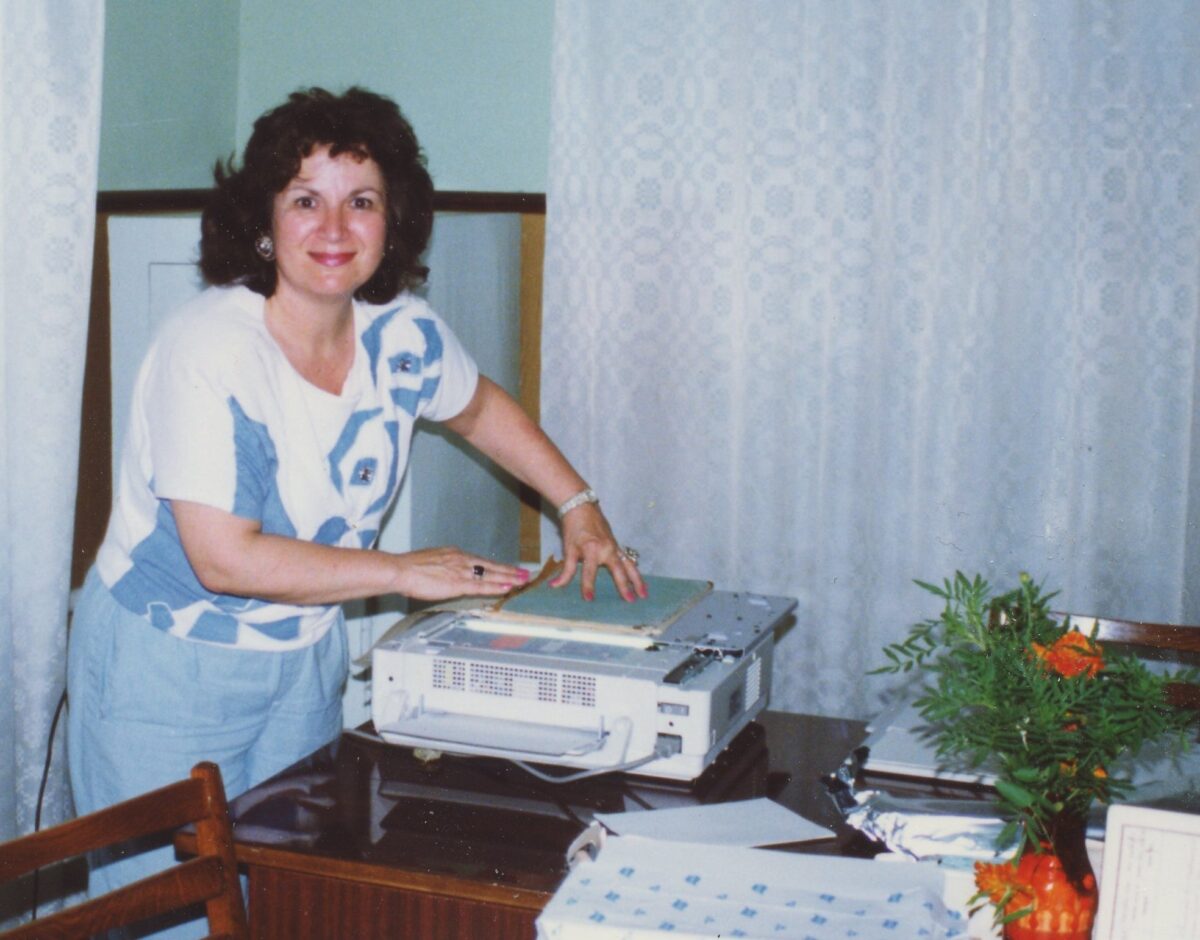Your Daily Phil: HUC-JIR and USC re-up partnership + Pressure grows on Adidas to drop Kanye
Good Monday morning!
In today’s Your Daily Phil, we report on the extension of a partnership between HUC-JIR and USC in L.A., and feature op-eds by demographer Sergio DellaPergola on Jewish population estimates and by Dayenu’s Vicki Kaplan on climate change and the midterm elections. Also in this newsletter: Marlene Engelhorn, Melissa Berman, Alia Tutor and the Jewish Agency’s Doron Almog. We’ll start with an announcement about camp grants, and more Kanye news.
A matching grant program for Jewish summer camps that originated at the beginning of the pandemic will be extended for at least the next five years, eJewishPhilanthropy has learned. The announcement firmly transforms the Harold Grinspoon Foundation funding from a COVID-19-era intervention to a post-pandemic initiative.
Initially, the grants totalled $10 million to approximately 100 summer camps, to be matched two-to-one by the camps. That program, called All Together Now, was extended into this past summer as a $5 million grant from the foundation, with the same two-to-one matching structure.
Now, the program has been renamed Forward Together and entails a total of $25 million in grants from the foundation to 104 camps over the next five years — in other words, remaining at $5 million per year. Now, however, the camps will need to match the grants on a three-to-one basis. If they match the grants four-to-one, they’ll receive a $10,000 bonus.
“This $25 million grant will give the camps a level of predictability in order for them to plan and execute their fundraising plans,” Sarah Eisinger, director of the foundation’s JCamp 180 program, told eJP. “It helps them build confidence that they are backstopped… It’s a tool that camps can use to continue to motivate and inspire their donors and attract new donors.”
Meanwhile, pressure continues to mount on Adidas to end its long and profitable collaboration with Kanye West, who has made a series of antisemitic statements in recent weeks. Last week, antisemitism watchdogs called on the sportswear and sneaker giant to drop West’s fasion label, Yeezy, due to the comments, which it hasn’t done. Adidas placed the partnership, which is worth approximately $2 billion annually, under review earlier this month.
Actors including David Schwimmer, Kat Dennings and Josh Gad echoed an Anti-Defamation League campaign to get Adidas to drop West, who goes by the name Ye. Hollywood agent Ari Emanuel also called for condemnation of West, and Vogue, the fashion magazine, announced that it would no longer collaborate with him, following a similar announcement from fashion company Balenciaga.
On Saturday, West told questioners outside his child’s basketball game that he didn’t lose money after the Balenciaga decision. “The day when I was taken off the Balenciaga site, that was one of the most freeing days,” he said. Regarding Adidas, he said, “We’re going through legal right now, so anything could happen.” He had previously said, “I could literally say antisemitic s*** and they can’t drop me.”
L.A. LINK
HUC and USC extend longtime partnership for 25 years


A view of USC.
The Los Angeles branch of the Hebrew Union College-Jewish Institute of Religion (HUC-JIR) sits a block north of the University of Southern California (USC) campus, a geographical proximity that has led to a decades-long partnership. The Reform institution is best known as the place where rabbis, cantors, Jewish educators and nonprofit professionals receive training, but it is also the home of HUC-JIR’s Louchheim School for Judaic Studies, which — thanks to a 50-year collaboration— functions as USC’s undergraduate Jewish studies program. The partnership was recently renewed for another 25 years, reports eJewishPhilanthropy’s Esther D. Kustanowitz.
Current conversations: Ten HUC-JIR faculty members currently teach Jewish studies classes to an estimated 650 to 800 USC students per year, many of them non-Jews, Leah Hochman, director of the Louchheim School, told eJP. Although the program is run through HUC-JIR, classes are nonsectarian in nature. In one recent example, in an undergraduate Jewish studies class discussion, students looked at an antisemitic tweet by Kanye West and the responses it provoked alongside the 1947 film “Gentleman’s Agreement,” which examines a non-Jew’s experiences with antisemitism while posing as a Jew. Among HUC’s graduate students, the conversation about West’s antisemitism was different, centering on how to reckon with the moment in a Jewish educational or congregational setting, she said.
Using the Jewish studies lens: “It’s two different ways of approaching really challenging material,” Hochman said. “We’re doing secular, advanced, academic, Jewish critical thinking on Jewish studies and using Jewish studies as a lens to think critically about the world.”
WHO COUNTS?
How many Jews, ready and willing?


Hitesh Singh
“The 2020 Pew Research Center report estimated the total net U.S. Jewish population at 7.5 million – an increase of 800,000 over Pew’s 6.7 million estimate in 2013. In Israel, the Central Bureau of Statistics estimated 6.7 million Jews in 2020 compared to 5.9 million in 2013 – also an increase of 800,000. On the face of it, the growth in Jewish population in the two countries from 2013-2020 was identical. Whether or not we believe that Jewish population growth is the same in both countries, these figures need explanation,” writes Sergio DellaPergola, professor emeritus at the Hebrew University of Jerusalem, in an opinion piece for eJewishPhilanthropy.
In Israel: “Estimating Jewish population [in Israel] is straightforward. The definition of who is a Jew reflects the central population registry of the Ministry of Interior and the classification criteria of the Orthodox rabbinate.”
In the U.S.: “Jewish population estimates [in the U.S.] are complicated by a lack of census data or a central population registry on religion. Since the end of the baby boom in 1964, the fertility of American Jewish women has never reached the average of 2.1 children needed to maintain a population in the long run. This has led to population aging and rising death rates among U.S. Jews. Nobody in the U.S. knows (or even tries to evaluate) how many Jews die every year.”
Not just numbers: “Numbers do not, and should not, pop out of the sky or from the alembic of the chief investigators who produce them. Jewish population estimates are not mere numbers. Numbers offer a snapshot of a situation at a given point in time. They also provide indications of whether a population is growing, stable or decreasing. The rich information we can extract from numbers provides demographers, sociologists and historians matter for speculation and for analytic work. Perhaps more importantly, they offer essential information for policy-oriented reflections and action by community leaders, educators and social workers.”
CLIMATE CHANGE
Who by fire? Who by flood? How will you vote?


Getty Images
“Every two years my fall calendar is crammed with not only Jewish festivals but elections too. Both of these, if you think about it, involve a series of rituals and meaningful exchanges after which, we hope, we will be sealed in the Book of Life for another year. We reflect, we make amends, we commit and recommit, we celebrate, all in the hopes of a good – a better – year ahead,” writes Vicki Kaplan, director of organizing for Dayenu: A Jewish Call to Climate Action, in an opinion piece for eJewishPhilanthropy.
Volunteer outreach: “That’s why dozens of volunteers from communities across the country spend the days after Yom Kippur calling concerned but infrequent Jewish and climate voters to encourage them to cast their ballots this year. And during Sukkot, we spent an evening calling voters while peeking through the branches of schach on the roof of our sukkah, at the twinkling stars – contemplating Creation while encouraging climate-concerned people to make a voting plan.”
Increasing Jewish voter participation: “Even in the Jewish world there is a lot of work to do. The myth of the Jewish voter holds that all Jews come out to vote at every election. But, while American Jews typically do indeed have an excellent voting rate of nearly 80% in presidential election years, that figure drops for the midterms just as it does in the wider population… Increasing Jewish voter participation in midterm elections by even 1 or 2% could mean a decisive tens or hundreds of thousands of votes cast. That’s why we’re talking with voters during 16 virtual phone banks to states around the country, and knocking on voters’ doors in Wisconsin and Georgia.”
Worthy Reads
Abraham Accords Advance: Anew series of conferences will convene government officials, NGOs and business leaders from Israel and the Arab nations with which it has normalized relations, funded by the Jeffrey M. Talpins Foundation and Schusterman Family Philanthropies, reports Jewish Insider’sGabby Deutch. “The initiative grew out of the October 2021 N7 Conference in Abu Dhabi, the first-ever multilateral meeting between senior representatives of Israel and all of its Arab partners… ‘The goal of N7 is to continue driving normalization forward and to help make sure that everyone in the region sees the benefits,’ said Talpins Foundation President Oren Eisner. ‘It is now critical that Arab-Israeli normalization continues, that we deepen relationships, foster new ones and demonstrate that normalization will deliver real tangible benefits to all people in the region.’” [JI]
Taxes, Not Philanthropy: A growing movement is emerging of young millionaires who want to have their fortunes taxed rather than allocating them later on through philanthropy, Emma Bubola reports in The New York Times: “In Ms. [Marlene] Engelhorn’s view, it shouldn’t be the wealthy who get to decide which personal interests and passions deserve their inherited millions. ‘There’s no need for another foundation,’ she said as she sat by a canal in Amsterdam and ate a loaf of bread she had brought in her backpack. ‘What’s really needed is structural change.’ Philanthropy to her only replicates the same power dynamics that have created the systemic inequalities she wants to see dismantled, with new tax policies for the super rich an essential aspect of that vision.” [NYT]
Kibbutz Eco-Tourism: Kibbutz Lotan, a four-hour drive south of Jerusalem and Tel Aviv, is the only kibbutz educating tourists about sustainable living, Melanie Swan writes for the BBC: “A series of sustainable, carbon-neutral mud domes offers a taste of communal living for visitors. Tourism is one of the three means of funding for the kibbutz, which also has a separate guest house, along with a dairy farm and extensive date orchards….[Lotan’s program lead Mark] Naveh said that the kibbutz’s short courses are a way to make real changes on an individual level at minimal cost… Jonathan Dekel-Chen is a historian on the kibbutz movement at The Hebrew University of Jerusalem and lives on a kibbutz himself. ‘Had Lotan tried this [eco-tourism] 30 years ago, it would have flopped. The world wasn’t ready for it. But now, sustainability is the issue of a generation and it’s a huge one in the human consciousness,’ he said.” [BBC]
Community Comms
Be featured: Email us to inform the eJP readership of your upcoming event, job opening, or other communication.
Word on the Street
On Sunday, Israel’s government approved the establishment of the Albert Einstein Museum. The project, led by the Ministry of Jerusalem Affairs and Heritage and the Hebrew University of Jerusalem, includes the construction of a stand-alone building on the university’s Safra Campus at Givat Ram that will house the full Einstein archives. The Israeli government will commit $6 million to the project, and the university will commit $12 million…
If You Heard What I Heard, a collection of interviews of grandchildren of Holocaust survivors, has formally established itself as a nonprofit organization. The initiative was launched in 2020 following an antisemitic act at a Los Angeles-area synagogue…
The African Refugee Development Center – Israel has been selected as a recipient of Zendesk’s inaugural Tech for Good Impact Awards. ARDC is a community-based organization founded in 2004 by African asylum seekers and Israeli citizens to assist African refugees in Israel…
Rockefeller Philanthropy Advisors President and CEO Melissa Berman announced she will step down in 2023…
Jonelle Procope, president and CEO of New York City’s nonprofit Apollo Theater, announced she will step down on June 30, 2023…
Joanne Pike will become CEO of the Alzheimer’s Association. She is currently president of the organization…
Otis Hackney has been appointed president and CEO of the I Have a Dream Foundation, which provides support to young people who lack resources. He is currently chief education officer in the administration of Philadelphia Mayor Jim Kenney…
Khady Kamara will be the Ronald O. Perelman Performing Arts Center’s first executive director. She was most recently executive director of New York’s Second Stage Theater…
Columbia Law School alumna Alia Tutor, president of the Alia Tutor Family Foundation, committed $17.5 million to help fund the reimagining of the school’s law library. It is the largest-ever gift to Columbia’s law school…
Pic of the Day


Kings Bay Y/ JCC Brooklyn
On his first visit to the United States, Doron Almog, chair of The Jewish Agency for Israel (center in blue jacket), visited Kings Bay Y/ JCC Brooklyn on Sunday, spending time with children, JCC staff and Israeli emissaries.
Birthdays


Odnopozov
Genealogist who specializes in the research of Jewish roots in Poland and the former Soviet Union, Miriam Weiner…
Writer and adjunct instructor at Queensborough Community College, Ira Greenfest… Stock market analyst who has published books and appears regularly on CNBC and Bloomberg TV, Charles Biderman… Retired Pentagon official, Judy Gleklen Kopff… Financial planner and president of Laredo, Texas-based International Asset Management, Joseph Rothstein… Democratic member of the U.S. House of Representatives from Southern California, Brad Sherman… Retired executive editor of The Washington Post, Martin “Marty” Baron… Chattanooga, Tenn-based CEO of Mohawk Industries, the world’s largest flooring company, Jeffrey S. Lorberbaum… U.S. Sen. Mike Rounds (R-SD)… U.S. Sen. Jeff Merkley(D-OR)… Program director at the Lucius N. Littauer Foundation, Alan Divack… Co-founder and former CEO of Sirius Satellite Radio, he made aliyah in 2002, David Margolese… Producer of CBS’s “60 Minutes,” Henry Schuster… Russian-Ukrainian oligarch and a co-founder of the Genesis Prize, German Khan… Professor of politics at the University of Hull in the U.K., Raphael Cohen-Almagor… Deputy Washington editor of The New York Times and author of (((Semitism))): Being Jewish in America in the Age of Trump, Jonathan Weisman… Russian oligarch and former owner of the Premier League’s Chelsea Football Club, Roman Abramovich… Co-founder of the Ira Sohn Conference Foundation, focused on pediatric cancer research and care, Evan Sohn… Political communications consultant, Tovah Ravitz Meehan… Israeli author and editor of science fiction and fantasy, Vered Tochterman… Fashion designer, Zac Posen… Founding partner of Be Clear Communications, Matt Lehrich… Rapper, singer, songwriter, record producer and actor, born to a Jewish mother in Toronto, he celebrated his bar mitzvah, Aubrey Drake Graham, now known as Drake… Executive director at Flatbush Community Fund, Yitzy Weinberg… Director of community engagement at Friends of the IDF, Yehuda Joel Friedman…
Email Editor@eJewishPhilanthropy.com to have your birthday included.








